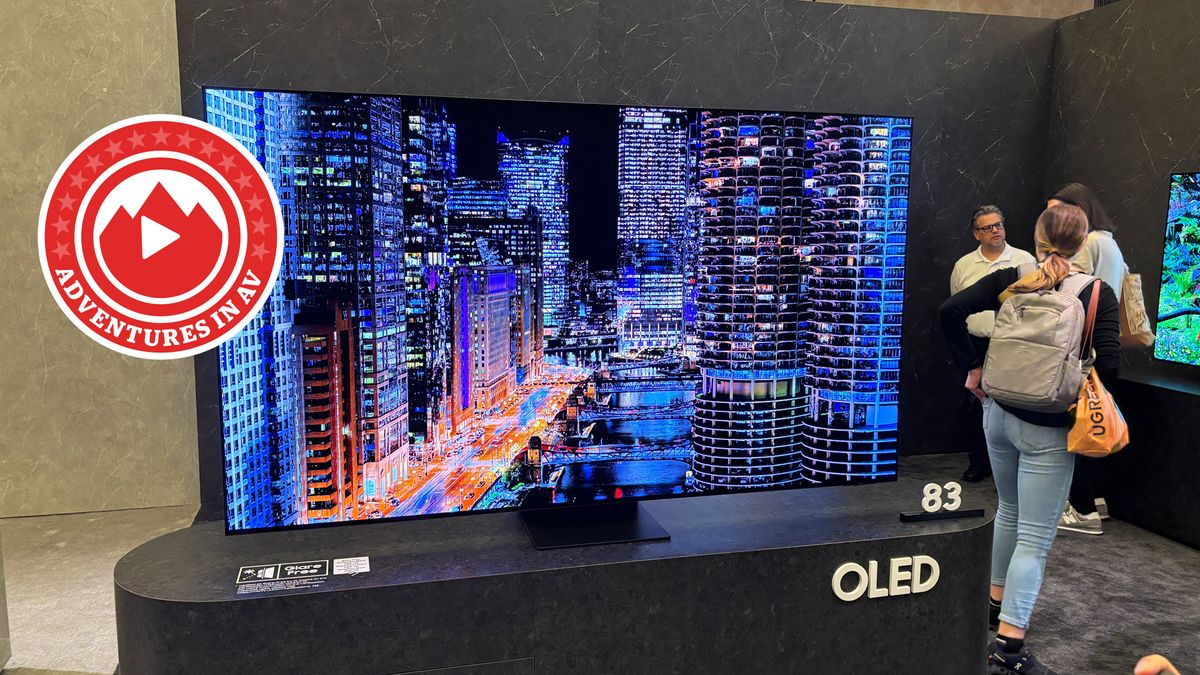I've you've read any of our Samsung TV reviews, you'll notice a common con, and it's one that has nothing to do with their panel technology or price.
Specifically, jump over to any recent review, including the S95D QD-OLED or QN95D NeoQLED and you'll notice, a common flaw in the features section relates to a certain HDR format,: Dolby Vision, which Samsung simply refuses to adopt.
"Why is this the case?" you may ask – Samsung says it's because it doesn't want to shell out for Dolby's costly licensing fees and, even though Samsung won't admit this, we're fairly sure it also comes down to its main competitor (also from Korea) embracing Dolby Vision with open arms... awkward.
Instead, the Korean tech conglomerate opted to pioneer the development of its own format, which we all fondly know as HDR10+. The idea here is that Samsung has much greater control over how it implements HDR into its TVs, allowing it to tune picture characteristics to align with its vision of what makes a good TV. Furthermore, it can implement HDR10+ freely with no concern regarding licensing costs; it's a win-win for Samsung.
In fact, Samsung is doubling down on this stance with its launch of Eclipsa Audio, which it developed in partnership with Google as a free, open-source alternative to Dolby Atmos. This immersive format is set to launch on Samsung's 2025 TV and soundbar line-up, and it's only coming to YouTube as of now, but it could make a powerful duo with HDR10+ to become a true Dolby-busting alternative.
Other manufacturers have also picked up HDR10+ as a supported standard, such as Panasonic, Philips, Hisense and TCL; though these companies haven't picked a side in the HDR war and instead opt to include support for both HDR10+ and Dolby Vision in harmonious coexistence.
There has always been one issue regarding HDR10+ though, and that surrounds supported platforms. If Dolby Vision is the golden child of the HDR family that's showered with praise and supported by the likes of Netflix, Apple TV+, Disney Plus, and even Xbox; then HDR10+ is the middle child that is unfortunately overlooked in many circumstances.
Uptake of HDR10+ has been much slower, aside from Amazon Prime Video which welcomed it with open arms and adopting it as the preferred format for most (but not all) of its original programming. Netflix hasn't budged on its Dolby Vision preference, while Apple has softened its stance by supporting the format on its first-party TV+ content and third-party content bought via the Store (formerly iTunes). However, the one that's weighted heaviest in this HDR debate has been Disney Plus, as it has been team Dolby Vision since it launched in 2020.
The launch of IMAX Enhanced content on the platform a couple of years ago seemed to signal that the House of Mouse was opening up to different formats, with DTS:X audio joining Dolby Atmos on the platform.
Surely enough, at CES 2025 the industry group that backed HDR10+'s development announced that the format would be coming to Disney's streaming service in the near future. Details were brief, and we are yet to have a confirmed list of content, but this seems like a huge win for HDR10+ and, more importantly, Samsung TVs.
While not having Dolby Vision was never a deal breaker, it was a shame that owners of Samsung TVs were stuck with streaming in HDR10 on a majority of formats. With Disney opening its doors to HDR10+, this needn't be the case. HDR10+ aims to improve colour accuracy, expand contrast and adapt the picture on a frame-by-frame basis thanks to the use of dynamic metadata; all of which are major benefits over the "traditional" HDR10 format.
Make no mistake, we're not giving Samsung a free pass here; Dolby Vision is still an excellent tool that, when utilised correctly, can help creatives present movies and TV shows that best represent their original vision. We'd still really like Samsung to join its comrades in the TV realm and adopt the format, but we've come to terms with the notion that this is very unlikely to happen.
Ultimately, the battle of the HDR formats will continue to rage on. However, you'll certainly find mentions of Disney Plus supporting HDR10+ in our future Samsung TV reviews, as it's a crucial feature to mention and certainly a welcome addition.
MORE:
Check out our picks for the best Samsung TVs
